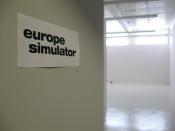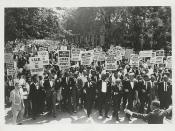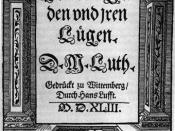Between the 1400's and the early 1700's what Europeans considered to be true had changed. By the 1400's the renaissance had completely been started and was going strong, and Florence was a major part of the world. It had the best banks and the best artists; overall, it was basically the center of the world. In the 1500's Martin Luther had begun the protestant reformation. Luther had many ideas that criticized the church. By around the 1520's Luther's ideas had become widespread. During the 1600's Amsterdam could be compared to Florence during the early part of the renaissance. It was the center of the world and high-class society. During the early 1700's Russia and other countries have been trying to be like the modern European countries at the time. With all of these new things happening and new ideas being created what Europeans had considered to be true had changed greatly.
The renaissance started somewhere in the 1300's. By the 1400's the renaissance was fully developed. Florence had been the center of the world, having a great location for trade (right next to the ocean) and many of the great artists living there. Because of this, the renaissance was a time of a great appreciation for the arts. Also, during the renaissance people had set high ideals for humans. The ideal man should be charming and polite. He should also be skilled in the arts. He should also be strong, a good wrestler, an expert horseback rider, and a good swordsman. Ultimately, people had expected the ideal man to be the perfect man. The perfect woman was also expected to be perfect. Women were expected to be well educated, to be very skilled in the arts, but they were not expected to look for fame like men. They were really...


